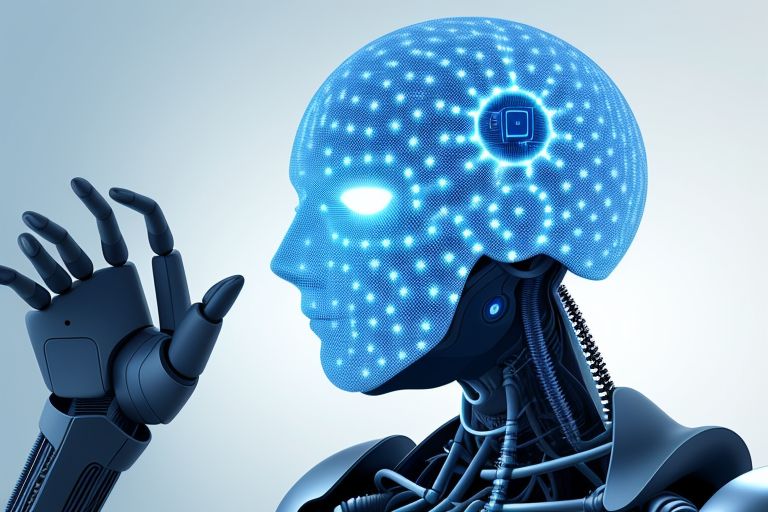Artificial Intelligence, or AI, has become one of the most transformative technologies of the 21st century. From powering virtual assistants like Siri and Alexa to enabling self-driving cars, AI is reshaping industries and everyday life. But what exactly is AI, and how does it work? In this article, we’ll explore the fundamentals of AI, its applications, and its impact on society, while also addressing common questions and misconceptions.
What is Artificial Intelligence?
Artificial Intelligence refers to the simulation of human intelligence in machines that are programmed to think, learn, and make decisions. These systems are designed to perform tasks that typically require human intelligence, such as understanding natural language, recognizing patterns, solving problems, and making predictions. AI can be categorized into two main types: Narrow AI, which is designed for specific tasks, and General AI, which aims to replicate human-like intelligence across a wide range of activities.
How Does AI Work?
AI systems rely on algorithms and data to function. Machine Learning (ML), a subset of AI, involves training algorithms on large datasets to identify patterns and make predictions. Deep Learning, a more advanced form of ML, uses neural networks to process complex data like images and speech. For example, facial recognition technology uses deep learning to analyze and identify faces in photos. AI also leverages Natural Language Processing (NLP) to understand and generate human language, enabling applications like chatbots and language translation tools.
Applications of AI in the Real World
AI is being used across various industries to improve efficiency, accuracy, and innovation. Here are some notable examples:
- Healthcare: AI-powered tools assist in diagnosing diseases, predicting patient outcomes, and personalizing treatment plans. For instance, IBM Watson Health uses AI to analyze medical data and provide insights to doctors.
- Finance: AI algorithms detect fraudulent transactions, automate trading, and provide personalized financial advice. Robo-advisors like Betterment use AI to manage investment portfolios.
- Retail: AI enhances customer experiences through personalized recommendations, inventory management, and chatbots. Amazon’s recommendation engine is a prime example of AI in action.
- Transportation: Self-driving cars, powered by AI, are revolutionizing the way we travel. Companies like Tesla and Waymo are leading the charge in autonomous vehicle technology.
The Benefits of AI
AI offers numerous advantages, including increased efficiency, cost savings, and improved decision-making. By automating repetitive tasks, AI allows businesses to focus on strategic initiatives. It also enables faster and more accurate data analysis, leading to better insights and outcomes. For example, AI-powered predictive analytics helps companies anticipate market trends and customer behavior.
Challenges and Ethical Considerations
Despite its potential, AI is not without challenges. Concerns about data privacy, job displacement, and algorithmic bias have sparked debates about the ethical use of AI. For instance, biased algorithms can perpetuate discrimination if not properly addressed. Additionally, the widespread adoption of AI raises questions about accountability and transparency. It’s crucial for developers and policymakers to establish guidelines to ensure AI is used responsibly.
The Future of AI
The future of AI is both exciting and uncertain. As technology continues to evolve, we can expect AI to become even more integrated into our lives. Advances in quantum computing, for example, could unlock new possibilities for AI by enabling faster and more complex computations. However, the development of General AI, which can perform any intellectual task that a human can do, remains a distant goal. In the meantime, the focus will likely remain on improving Narrow AI applications and addressing ethical concerns.
How to Prepare for an AI-Driven World
As AI becomes more prevalent, it’s essential to stay informed and adapt to the changing landscape. Here are some steps you can take:
- Learn About AI: Educate yourself on the basics of AI and its applications. Online courses and resources are widely available.
- Develop Relevant Skills: Consider acquiring skills in data science, programming, and machine learning to stay competitive in the job market.
- Embrace AI Tools: Explore AI-powered tools and platforms that can enhance your productivity and decision-making.
- Advocate for Ethical AI: Support initiatives that promote transparency, fairness, and accountability in AI development and deployment.
Conclusion
Artificial Intelligence is no longer a futuristic concept—it’s a reality that’s transforming the way we live and work. From healthcare to transportation, AI is driving innovation and solving complex problems. However, as we embrace this technology, it’s important to address the challenges and ethical considerations that come with it. By staying informed and proactive, we can harness the power of AI to create a better future for all. Whether you’re a business leader, a student, or simply a curious individual, understanding AI is key to navigating the opportunities and challenges of the digital age.
“`












Leave a Reply